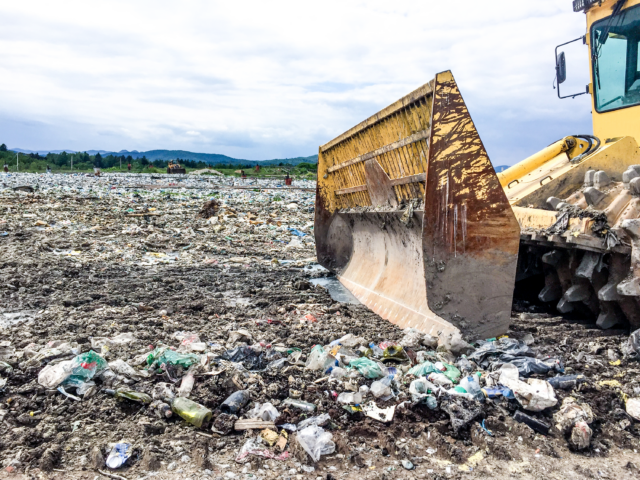New PFAS Monitoring Requirements at North Carolina Landfills – Obtaining Valid Data Is Essential

Over the past several years there has been a lot of conversation, research, and investigation on emerging contaminants, including chemicals known as per- and polyfluoroalkyl substances or, PFAS. PFAS are more commonly referred to as “forever chemicals.” These man-made, synthetic chemicals were first created in the 1930s and now comprise thousands of different types of synthetic chemicals used in industrial and manufacturing applications, as well as commercial and consumer products.
Ongoing legislation and regulations surrounding PFAS are popping up in many states across the U.S. And recently, the North Carolina Division of Environmental Quality (NCDEQ) released new requirements that all groundwater, surface water, underdrain, and leachate samples collected at solid waste landfills, as required by their solid waste permit or approved water quality monitoring plan, must be analyzed for PFAS on a semiannual basis. This includes “any active, inactive, or closed sanitary landfill currently conducting and reporting water quality and/or leachate sampling results.” NCDEQ considers municipal solid waste (MSW), construction and demolition (C&D), and industrial waste landfills to be sanitary landfills.
Background on PFAS Research and Regulation
Throughout the past year, the United States Environmental Protection Agency (US EPA) has been working on establishing monitoring and regulatory protocols (sampling and analytical procedures) to address these emerging contaminants. Most recently, the US EPA proposed establishing drinking water standards for six PFAS; the US EPA anticipates the regulations to be finalized by the end of 2023. Locally, NCDEQ investigated the presence of PFAS in the air, soil, and waters of North Carolina and conducted several informative public meetings.
PFAS Sampling Requirements for North Carolina Landfills
In March 2023, a memorandum released by NCDEQ’s Solid Waste Section stated that NCDEQ is not limiting the reporting to the US EPA’s six PFAS mentioned above but is instead requiring the reporting of 40 PFAS. Based on conversations with NCDEQ and their Clarification Memo issued on July 17, 2023, LaBella understands that the intent of this requirement is to evaluate the prevalence of PFAS at landfills in North Carolina; the data will not be used for compliance purposes but will be evaluated and a determination made as to any additional monitoring requirements. Such decisions will be site-specific and will depend on several factors, including specific laboratory results, the need for confirmation or source determination, and potential impact to human health and the environment.
Obtaining valid PFAS data is critical since NCDEQ will use the data to identify the locations and concentrations of PFAS at North Carolina landfills. A key difference with PFAS sampling not typically considered with regular compliance sampling is the potential for cross-contamination from workers’ clothing, sampling equipment, and sampling containers. Special precautions need to be taken to limit false positives and inaccurate elevated detections during sampling, which drives up labor and equipment costs.
Limited Availability of PFAS Analysis Laboratories
Few laboratories are set up to conduct PFAS analyses and, currently, there is only one laboratory located in North Carolina that provides this service. Interestingly, NCDEQ has not yet certified laboratories in the state for PFAS through its Laboratory Certification Program; accreditation is granted only through the non-governmental American National Standards Institute (ANSI) National Accreditation Board (ANAB).
With the sparse number of laboratories offering PFAS testing, owners/operators should expect delayed turnaround times due to the massive increase in volume now that the new requirements are in effect. The delay in providing PFAS results by the laboratories may affect the owner/operator’s ability to meet the regulatory reporting deadlines associated with compliance and corrective action monitoring. NCDEQ will allow submittal of PFAS monitoring reports independently of the compliance monitoring reports provided the section hydrogeologist at the facility is informed of the delay.
Challenges With the US EPA Draft Method 1633
The US EPA Draft Method 1633 is the testing method by which NCDEQ is requiring the samples from landfills to be analyzed. It is important to note that the US EPA Draft Method 1633 is not a final, approved method. As such, the method is still being evaluated so that its kinks can be worked out.
For example, laboratories currently running the method have identified that in some circumstances related to the particulate content of the groundwater sample, the draft method is unable to report results down to the very low US EPA-proposed Maximum Contaminant Level of 4 parts per trillion (ppt). In these cases, the reporting limit may be an order of magnitude higher than 4 ppt (i.e., closer to 40 ppt). If the sample contains PFAS above the adjusted reporting limit, then the higher reporting limit is not an issue. However, if PFAS is not detected above the adjusted reporting limit, it will be impossible to know if PFAS is present in the sample at a concentration between 4 and the new reporting limit. In other words, the data that NCDEQ is requiring to be collected – before the analytical method is approved as final – may not result in a complete accounting of the locations and concentrations of PFAS at North Carolina landfills.
Impact on Solid Waste Industry
As labor, equipment, and laboratory charges increase due to this new requirement, it is more important than ever for landfill owners/operators to scrutinize all sampling points in their monitoring network. Many landfill monitoring programs are based on old or outdated monitoring plans that may include groundwater or surface water monitoring points no longer necessary for compliance or corrective action. Currently, NCDEQ will consider requests to reduce the number of sampling points for PFAS, but these requests must be based on science rather than cost. LaBella has strong working relationships with all seven NCDEQ hydrogeologists and can facilitate requests where appropriate.
The new PFAS sampling requirements in North Carolina landfills have significant implications for the solid waste industry. The increased costs and challenges associated with PFAS analysis and sampling must be carefully addressed. Landfill owners/operators need to consider the limited availability of PFAS analysis laboratories and the potential for reporting delays. Furthermore, the importance of accurate data collection and the need for careful evaluation of monitoring networks are crucial to meet the requirements effectively.
Click the button below to learn more about LaBella’s work with communities to help successfully monitor and treat contamination caused by forever chemicals.

About the Author
John Westerfield, PGEnvironmental Director – Waste & Recycling
John has been in the environmental consulting industry for over 30 years, with more than 14 years of experience providing senior technical guidance to staff managing environmental compliance programs for solid waste facilities in North Carolina, South Carolina, Virginia, and Maryland. He provides technical oversight and review of all environmental deliverables and is responsible for client and regulator relations. John supports LaBella’s environmental staff and programs with environmental training, technical standards, standard operating guidelines, quality control, and health and safety policies.
His project management expertise includes landfill gas monitoring, reporting, and remediation; groundwater characterization and geophysical studies at solid waste landfills; groundwater and dual phase extraction system design and installation; Phase I and Phase II environmental assessments and investigations; remedial action plans; facility financial assurance; and NPDES monitoring and reporting. John has also developed project management tools used by staff to ensure regulatory deadlines are met.